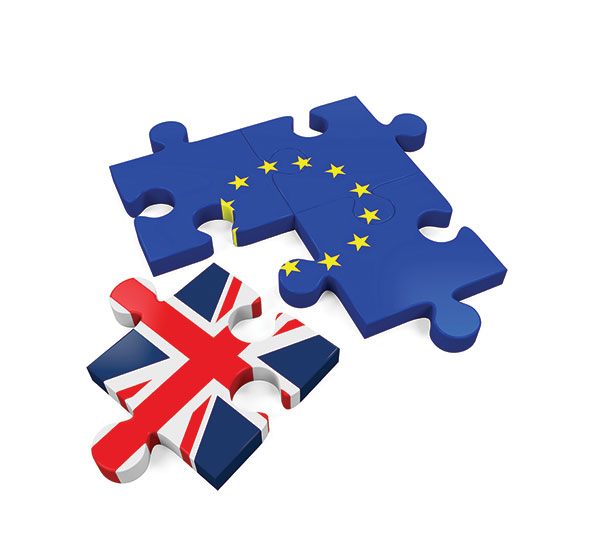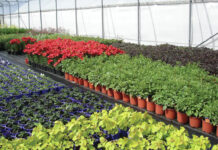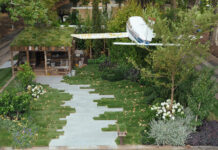Q: What is a Phytosanitary Certificate?
A: A Phytosanitary Certificate is a legal document issued by the NPPO (National Plant Protection Organisation) of the country of export for goods and commercial consignments of plant origin certifying that they are free from certain/specified harmful and quarantine pests and diseases. Click here to see an example of a Phytosanitary Certificate.
Q: I wish to import regulated plants and plant products into Ireland from a third country and I want to get a Phytosanitary certificate for these products. Who do I contact?
A: Contact the competent authority or NPPO (National Plant Protection Organisation) of the country of origin of the goods? A link to contact details can be found here. Alternatively, your seller in the country of origin can arrange this locally with the competent authority.
Q: What is a third country?
A: A third country is referred to in EU treaties as a country that is not a member of the European Union. When the UK leaves the European Union it will become a third country.
Q: I am working for a retail multiple and we import a number of consignments of plants per week into Ireland from the UK. Do I need to get a phytosanitary certificate from each of my suppliers of plants in the UK?, or will one phytosanitary certificate cover the entire consignment?
A: It is the NPPO (National Plant Protection Organisation) of UK who issue phytosanitary certificates for consignments of plants and plant products for export to countries outside their jurisdiction. Consignments of plants and plant products travelling from third countries are typically accompanied by one phytosanitary certificate that covers the entire consignment. However, it is up to the UK authorities to decide how many phytosanitary certificates they issue. Please note that in situations where we receive multiple phytosanitary certificates for a consignment, that it will result in processing delays.
Q: My company imports plants for planting from the UK in grouped consignments. When the UK leave the EU, will I be charged fees for the entire consignment?
A: No, you will only be charged for the plants and plant products element of the consignment as set out in the fees section on this page.
Q: My company imports plants for plating from the UK and EU member states in grouped consignments. When the UK leaves the EU, will I require a phytosanitary certificate for the entire consignment?
A: No, a phytosanitary certificate will only be required for the plants and plant products that were produced in the UK. The plants and plant products that were produced in another EU member state will be considered to be transit goods and will continue to be covered under the plant passport system.
Q: My grouped consignment containing regulated plants and plant products has been called for a physical examination. What can I do to ensure the fastest processing time as possible to enable me to deliver my consignment to its intended point of destination?
A: In the event of a grouped consignment containing regulated plants and plant products DAFM may have to carry out a full strip/breakdown of the container/side curtain/refer. To ensure speedy processing we encourage importers to ensure that the regulated plants and plant products in the consignment are easily accessible to enable the phytosanitary inspectors to carry out their work in an efficient manner and avoid having to carry out a full strip/breakdown.
Q: Do I have customs obligations when importing plants and plant products from the UK? If so, where do I find out what I need to do?
A: Yes, when importing plants and plant products from the UK you will have certain obligations to fulfil from a customs perspective. Please click here for more details.
Q: What is a SAD?
A: SAD stands for Single Administrative Document which is a form used for customs declarations in the EU. Please click here for more details.
Q: What is a CN code?, and where can I find the correct CN code for my product?
A: CN stands for combined nomenclature. It is the common nomenclature of the EU and is an 8 digit product classification of goods in export declarations to meet the requirements of Common Customs Tariff and the EU’s external trade statistics. To find out what CN code applies to your commodity, using the advanced search option, you can access the EU database for CN codes here.
Bord Bia are running Regional and Dublin workshops on customs training please follow the highlighted links to register for these events.
Q: I am a non-commercial importer and I wish to bring cut flowers home from a third country (non-EU) what do I need to do?
A: There are many thousands of species of cut flowers, some are regulated others are not, so it’s not possible to tell you until we know the specific details. Please submit your query via email to plantandpests@agriculture.gov.ie
Q: Post import checks I noted unusual occurrence of harmful organisms (pests or diseases) on my consignment. Who do I contact?
A: Immediately contact the Department of Agriculture, Food and the Marine at email address plantandpests@agriculture.gov.ie or by telephone 01-5058885.
Q: What is a Plant Passport?
A: A Plant Passport is an official label issued by producer and authorised by the competent authority or NPPO, with gives evidence that the provisions of the EU Directives relating to plant health standards and special requirements are satisfied and which are:
Standardised at the Community level for different types of plants or plant products, and Issued in accordance with the implementing rules governing the details of the procedure for issuing plant passports.
Q: What does a Plant Passport look like? And where can I find it on a consignment of plants?
A: Typically a plant passport can be attached to the plant in the format below or referenced in the associated documentation i.e. the invoice or the delivery docket.


Q: What is a protected zone?
A: A zone in the Community, which has been recognised by the EU as being: One in which one or more harmful organisms referred to in the Plant Health Directive, which are established in one or more parts of the Community, do not occur despite favourable ecological conditions for them to establish. In which there is a danger that certain harmful organisms will establish themselves, given propitious ecological conditions, for particular crops despite the fact that these harmful organisms are not endemic or established in the European Community.








